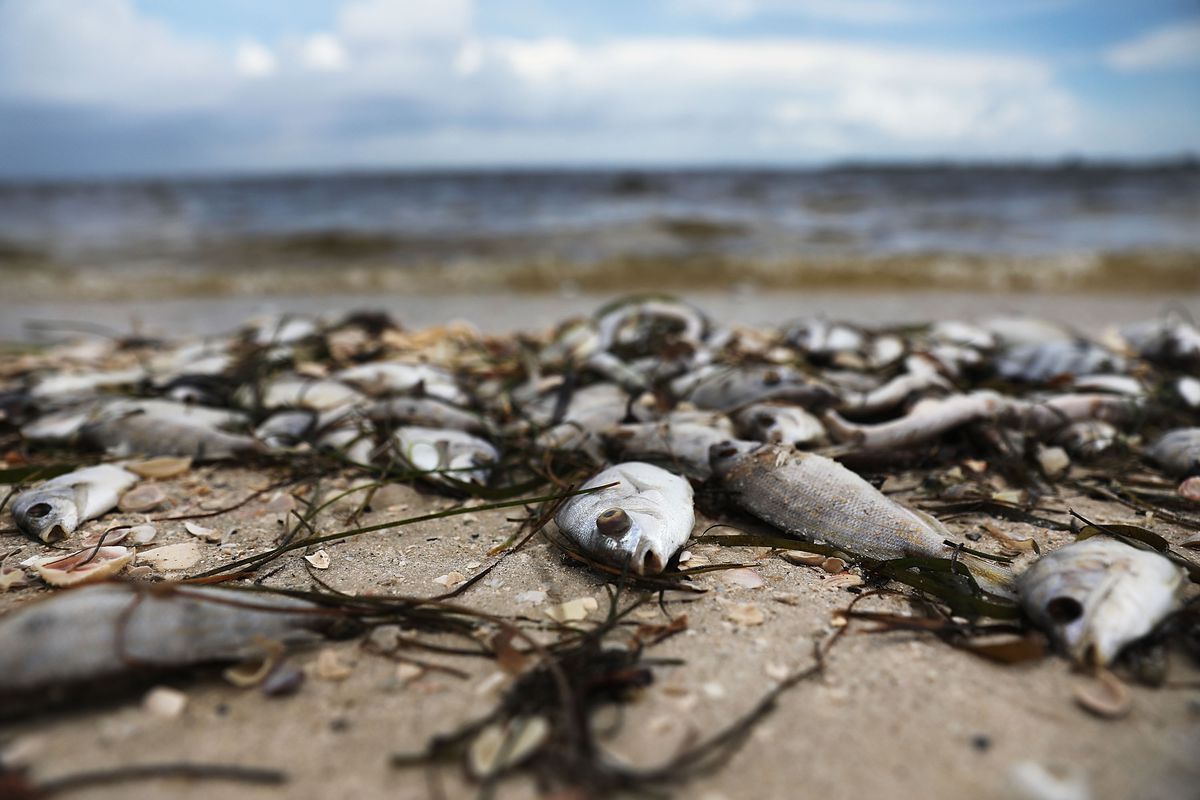
A fish die-off has again struck Biscayne Bay, this time over Labor Day weekend near the 79th Street Basin in Miami Beach.
While Miami-Dade crews and environmental groups are still working to quantify the number of dead marine life, the cause is assumed to be similar to that of past fish kills: severely depleted oxygen in the bay.
“Early evidence indicates that the cause is a combination of extreme heat with numerous rainy days, which reduces oxygen levels in our waterways,” a city press note said.
A Miami-Dade spokesperson told the Miami Herald the county’s Department of Environmental Resources was aware of hundreds of dead fish on the eastern side of the bay along Miami Beach’s coastline.
Rachel Silverstein, executive director of the nonprofit watershed and wildlife advocacy group Miami Waterkeeper, which in August 2020 documented an algal bloom in the bay that killed 27,000-plus fish, told the Herald she had received reports of four separate die-off sites on Monday.
That same day, Miami-Dade Mayor Daniella Levine Cava reminded residents the county is working “aggressively” to speed up water and wastewater infrastructure, including an initiative to link properties now dependent on septic tanks to the county sewer system, and stop other negative contributors like fertilizer and surface water runoff from reaching the waterbody.
“This incident is another reminder that the health of our beloved Bay is in jeopardy, which is why Miami-Dade County is committed to taking all possible action to turn around the crisis facing our waters,” she said in a statement. “Earlier this year, the County Commission passed and we began implementing a ban on fertilizer use during the rainy season (May 15 – October 31), when nutrients are more likely to be carried in water flowing off the urban landscape. And in this year’s proposed budget, we plan to invest millions of dollars to tackle fish kills and flooding, handle seaweed collection and removal, and preserve and protect Biscayne Bay.”
After the August 2020 fish kill, which marked the largest mass sea mortality event in recent Miami-Dade history, Levine Cava appointed Irela Bagué to serve as the county’s first chief bay officer. Bagué, who owns and operates a public affairs firm focused on environmental issues, previously chaired the county’s Biscayne Bay Task Force, which among other things recommended the creation of the chief bay officer position.
The perilous health of Biscayne Bay is an issue that has attracted attention from many of Florida’s top elected officials. In June, upon signing legislation by Sen. Ileana Garcia and Rep. Bryan Avila, Gov. Ron DeSantis described the bay as “a critical natural resources for this region” in need of protection.
“This is the largest estuary in the state of Florida,” he said then. “This is an international destination serving 3 million residents and 16 million visitors annually. It contains the largest passenger port in the world. It’s an international sailing destination, and residents and visitors alike recognize and benefit from its ecological and recreational importance.”
The bill created the Biscayne Bay Commission, a nine-member body within the Department of Environmental Protection comprised of county, state and regional appointees.
Its goal, according to lawmakers, is to serve as a policy committee, working group, adviser to the county and something of a “clearinghouse” for bay improvement plans that in the past were entangled in political, intergovernmental and interagency blame games.
Miami-Dade DERM will continue inspections and collect water quality samples over the next several days to analyze conditions in the impacted area, county personnel wrote. The department, which has been collaborating with Florida International University and the Department of Environmental Protection Biscayne Bay Aquatic Preserves on data and information sharing, will also work with Miami Beach on removing and properly disposing fish biomass from affected areas.
Residents and visitors are encouraged to report fish kills online, by email or by calling 305-372-6955. To learn more about the county’s rainy season fertilizer ban and other related information, click here.

One comment
Lucy Sellers
September 7, 2021 at 12:24 pm
Fantastic work-from-home opportunity for everryone…Work for three to eight hrs a day and start getting paid in the range of 13,000 to 19,000 dollars a month…Weekly payments…And best thing is..It’s so Easy…
follow details on this websit…….. https://Www.Money74.Com
Comments are closed.